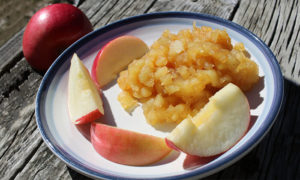Is Veganism Expensive? Cost of a Plant-Based Diet

Cost is a common concern among those who are interested in adopting a plant-based lifestyle. While there’s no denying that some vegan products can be expensive, there are ways to keep costs down and make veganism affordable.
The Cost of Veganism
Switching to a vegan lifestyle can be an affordable and budget-friendly option for many people. However, the cost of veganism can vary depending on your location, dietary preferences, and lifestyle choices. Let’s explore some tips to save money while maintaining a healthy and nutritious vegan diet.
Eating a vegan diet can be inexpensive if you stick to whole foods like fruits, vegetables, grains, and legumes. These foods are often cheaper than meat and dairy products, and they’re also more nutritious. However, if you rely heavily on vegan convenience foods like mock meats and vegan cheese, your grocery bill can quickly add up.
That being said, there are many ways to make veganism affordable. Shopping at farmers’ markets and buying in bulk can help you save money on fresh produce and grains. Cooking meals at home instead of eating out can also help you save money. And if you do want to indulge in vegan convenience foods, look for sales and coupons to help you save. With a little bit of planning and effort, it’s possible to enjoy a healthy, delicious, and affordable vegan diet.
Grocery Shopping
One of the biggest expenses associated with veganism is grocery shopping. However, with proper planning and budgeting, you can save money while still enjoying a variety of delicious and nutritious vegan foods. Here are some tips to help you save money on your grocery bill:
- Buy in bulk: Purchasing grains, legumes, and other non-perishable items in bulk can save you money in the long run.
- Shop seasonally: Buy fruits and vegetables that are in season to save money and reduce your carbon footprint.
- Buy frozen: Frozen fruits and vegetables are often cheaper than fresh and can be just as nutritious.
- Shop at farmer’s markets: Buying directly from local farmers can be a cost-effective way to get fresh produce.
Meal Planning
Meal planning is an essential part of maintaining a healthy and budget-friendly vegan diet. Here are some tips to help you save money while meal planning:
- Plan your meals around what’s on sale: Check your local grocery store’s weekly flyer and plan your meals around the items that are on sale.
- Cook in bulk: Cook large batches of meals and freeze them for later use.
- Use leftovers: Use leftovers to create new meals and reduce food waste.
- DIY: Make your own vegan staples like nut milk, hummus, and veggie burgers to save money.
Restaurant Dining
Eating out at restaurants can be more expensive, but with a little research, you can find affordable vegan options. Here are some tips to help you save money while dining out:
- Research vegan-friendly restaurants: Search nearby restaurants ahead of time, especially ones that have dedicated plant-based menus.
- Check the menu: Look for vegan options on the menu and ask the server for recommendations.
- Share a meal: Splitting a meal with a friend or partner can help reduce the cost of dining out.
- Skip the drinks: Drinks can be expensive, so consider skipping them or ordering water instead.
Veganism can be a cost-effective lifestyle choice if you plan and budget properly. By following these tips, you can enjoy a healthy and nutritious vegan diet without breaking the bank.
The Benefits of Veganism
Switching to a vegan diet has many benefits for your health, the environment, and animals. So taking the time to figure out how a plant-based diet can fit into your budget is worth the cost. Here are some of the main benefits of veganism:
Health Benefits
- Lower risk of chronic diseases: A vegan diet is associated with a lower risk of heart disease, type 2 diabetes, hypertension, and some types of cancer. Plant-based diets are also linked to lower rates of obesity and better weight management.
- Nutrient-dense diet: A well-planned vegan diet can provide all the nutrients your body needs, including protein, iron, calcium, and vitamin B12. Plant-based foods are rich in fiber, antioxidants, and phytochemicals that can boost your immune system and reduce inflammation.
- Improved digestion: A vegan diet is high in fiber, which can promote healthy digestion, prevent constipation, and reduce the risk of colon cancer.
Environmental Benefits
- Reduced greenhouse gas emissions: Animal agriculture is a major contributor to greenhouse gas emissions, deforestation, and water pollution. A vegan diet can reduce your carbon footprint and help combat climate change.
- Conservation of resources: Producing animal products requires more land, water, and energy than producing plant-based foods. By choosing a vegan diet, you can help conserve resources and reduce the strain on the environment.
Animal Welfare Benefits
- Reduced animal suffering: A vegan diet is a compassionate choice that avoids contributing to the exploitation and suffering of animals. By choosing plant-based foods, you can help reduce the demand for animal products and support a more ethical and sustainable food system.
Veganism has many benefits for your health, the environment, and animals. By adopting a vegan diet, you can improve your health, reduce your environmental impact, and contribute to a more compassionate world.
Debunking the Myth of Expensive Veganism
It is a common myth that veganism is an expensive lifestyle choice. However, this is not necessarily true. In fact, a well-planned vegan diet can be more affordable than a diet that includes meat and dairy products. Here are a few reasons why:
Plant-based staples are cheap. Vegan diets rely heavily on plant-based staples such as grains, legumes, and vegetables. These foods tend to be much cheaper than animal products. For example, a pound of dried chickpeas can cost less than a pound of chicken breasts, and a bag of rice can be much cheaper than a package of ground beef.
Veganism can reduce food waste. Animal products are often more perishable than plant-based foods, which means they are more likely to go bad and be wasted. By contrast, many plant-based staples have a longer shelf life and can be used in a variety of dishes. This means that vegans can often save money by reducing their food waste.
Veganism can encourage home cooking. Eating out can be expensive, especially if you’re looking for vegan options. By contrast, cooking at home can be much cheaper and allows you to control the ingredients and portion sizes. Veganism can encourage you to experiment with new recipes and ingredients, which can be both fun and affordable.
Veganism can lead to better health outcomes. While not directly related to cost, it’s worth noting that a well-planned vegan diet can lead to better health outcomes, which can ultimately save you money on healthcare costs. Studies have shown that vegans tend to have lower rates of heart disease, cancer, and obesity than non-vegans.
While there may be some vegan products that are more expensive than their animal-based counterparts, veganism as a whole can be a cost-effective lifestyle choice. By focusing on plant-based staples, reducing food waste, cooking at home, and prioritizing your health, you can enjoy the benefits of a vegan lifestyle without breaking the bank.
A vegan diet is not just about what you eat, but also about the impact you have on the environment and animals. By choosing a vegan lifestyle, you are making a positive impact on the world around you and may find that the benefits far outweigh any additional costs.






